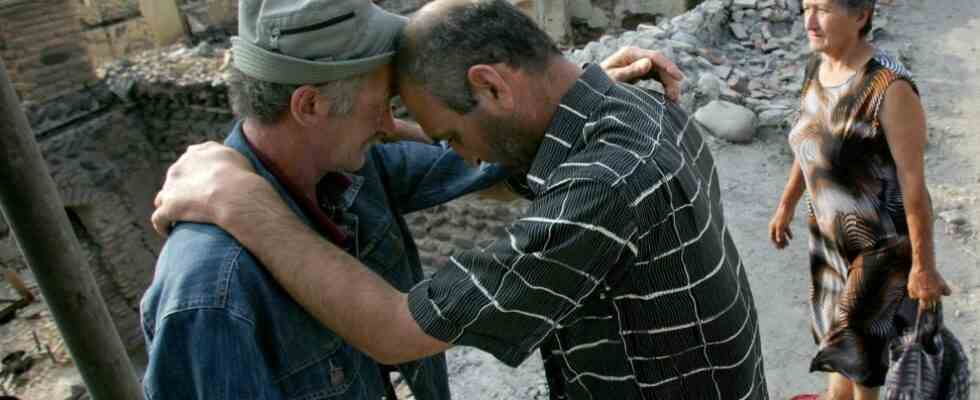The chief prosecutor at the International Criminal Court (ICC), Briton Karim Khan, has a sense of timing. On Thursday he applied for three arrest warrants for the Russian invasion of Georgia in 2008, naming three suspected Russian war crimes commanders. Fourth, he listed a major general in the Russian army at the time as the suspected mastermind, who has since passed away.
These investigations had been in the works for years. But now, in the third week of Russia’s invasion of Ukraine, the chilling signal to today’s Russian authorities is clear: Look, we’re serious about our investigations. And we don’t forget.
All reports and background information on the war in Ukraine – in the SZ in the morning and in the SZ in the evening. Our Messages–Newsletter brings you up to date twice a day. Free registration at sz.de/morgenabend. In our news app (download here) you can also subscribe to the news newsletter or our breaking news as a push message.
It is about three men who were involved in Russia’s takeover of power in the Georgian border region of South Ossetia between July and October 2008. General Mikhail Mindzaev was interior minister of the pro-Russian separatists, Gamlet Guchmazov was head of their prisons, David Sanakoev was their “human rights officer” and later foreign minister. The fourth, Major General Vyacheslav Borisov, who died last November, was deputy chief of the Russian Air Force. In his press release, the ICC chief prosecutor lists the men’s crimes, followed by the remarkable sentence: “My agency found similar patterns of behavior during its preliminary investigations into the situation in Ukraine.”
Many Georgians fled when the Russian military took control of the area alongside Russian-speaking separatists in 2008. Those Georgians who stayed behind – especially the elderly or those who could not or did not want to leave their homes – were often arrested, Karim Khan said in his statement. “Evidence shows that many of these people were unlawfully detained in unsanitary and unsafe conditions, insulted, beaten, tortured and humiliated.”
Threats of punishment could reduce Putin’s willingness to negotiate
One of the declared goals of the prosecutors at the ICC is not only to clear up the injustices of the past, but also to press ahead with those investigations that promise to have an impact in the present. They regularly reject doubts that warlords will be impressed by this. For example, the predecessor of Chief Prosecutor Khan, Fatou Bensouda from Gambia, referred in an interview with the Süddeutsche Zeitung once on the example of Kenya. There, the International Criminal Court indicted the politicians who instigated week-long riots against civilians during the 2008 election. The next election was then much more peaceful. “I’m not saying there’s a clear causality, but I think the ICC is already playing a role.”
With a view to the war in Ukraine, however, there is also criticism of this prosecution – especially after some western countries, including Germany, officially requested the initiation of war crimes investigations a few days ago. Not only Wolfgang Ischinger, longtime head of the Munich Security Conference, points out that threats of punishment could reduce Putin’s willingness to negotiate rather than increase it. Ischinger recalls the 1990s in the Balkans: Back then, Bosnian Serb leaders could not have taken part in peace negotiations in the United States because they were wanted with an arrest warrant. A problematic effect.
There was also criticism in the case of the civil war in Libya. When the ICC there issued an arrest warrant for the reeling dictator Muammar al-Gaddafi in 2011, some observers objected that this would finally block his way out into exile. But the ICC was undeterred. Gaddafi continued to fight his fight, which had long since become hopeless, to the end.

